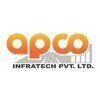
i
Filter interviews by
L. N. Malviya Infra Projects Group Assistant Highway Engineer Interview Questions, Process, and Tips
L. N. Malviya Infra Projects Group Assistant Highway Engineer Interview Experiences
5 interviews found
I applied via Referral and was interviewed before Apr 2023. There was 1 interview round.
(5 Questions)
- Q1. What is required slum for PQC?
- Ans.
Slump is the required consistency of PQC (Pavement Quality Concrete) for proper construction.
The required slump for PQC typically ranges from 20-40 mm.
Slump test should be conducted at the site to ensure the correct consistency.
Proper slump ensures good workability and strength of the concrete.
If the slump is too high, it may lead to segregation and bleeding issues.
If the slump is too low, it may result in difficulty i
- Q2. What is laying temprature for DBM?
- Ans.
The laying temperature for DBM (Dense Bituminous Macadam) typically ranges from 140 to 160 degrees Celsius.
Laying temperature for DBM is crucial for achieving proper compaction and bonding of the material.
The temperature range of 140-160 degrees Celsius ensures that the DBM is workable and can be compacted effectively.
Excessive heat can lead to premature cooling and inadequate compaction, while lower temperatures may r...
- Q3. What is the maximum thickness of a layer?
- Ans.
The maximum thickness of a layer in highway engineering is typically around 300 mm.
Maximum thickness is usually limited to around 300 mm for practical and cost-effective reasons
Thicker layers may lead to excessive settlement or instability
Thinner layers may not provide adequate strength or durability
Examples: Base course layer in flexible pavement is typically around 150-300 mm thick
- Q4. What is the maximum speed of a compactor
- Ans.
The maximum speed of a compactor varies depending on the type and model, but typically ranges from 2 to 6 miles per hour.
The maximum speed of a compactor is usually between 2 to 6 miles per hour.
The speed can vary based on the type of compactor (e.g. vibratory, smooth drum) and the model.
Higher speed compactors are often used for larger projects where efficiency is key.
Lower speed compactors are used for more precise c
- Q5. What should be the maximum speed of paver during DBM LAYING?
- Ans.
The maximum speed of paver during DBM laying should be around 2-3 km/h to ensure proper compaction and quality of the road surface.
The maximum speed of the paver should be controlled to allow for proper compaction of the DBM layer.
Excessive speed can lead to inadequate compaction, resulting in a weaker road surface and potential future issues.
A speed of 2-3 km/h is generally recommended for DBM laying to achieve optima...
I applied via Walk-in and was interviewed before Oct 2023. There was 1 interview round.
(2 Questions)
- Q1. What is your name
- Q2. What is the bitumen percentage in DBM
- Ans.
The bitumen percentage in Dense Bituminous Macadam (DBM) typically ranges from 5-7%.
Bitumen percentage in DBM is usually around 5-7%
The exact percentage may vary based on the specific mix design and project requirements
Higher bitumen content provides better durability and resistance to weathering
Lower bitumen content may result in a more rigid mix but may be prone to cracking
Proper testing and quality control measures ...
Interview Preparation Tips

Basic knowledge of IQ and quantitative and basic reasoning.
(1 Question)
- Q1. Basic to advanced knowledge about civil engineering Highway, transportation.
(1 Question)
- Q1. Personal details and salary discussion
I applied via Referral and was interviewed before Sep 2021. There were 3 interview rounds.

(2 Questions)
- Q1. Tell me about yourself
- Q2. When did you complete your Degree
(4 Questions)
- Q1. What was the thickness of different layer in your last project?
- Ans. Sub grade-500mm, WMM-200mm,DLC-150mm,Sand-10mm, Plastic sprater-100micron thick, PQC-360mm.
- Q2. How do you laying pqc?
- Ans.
PQC laying refers to the process of laying a Pavement Quality Concrete (PQC) layer on a highway.
Prepare the subgrade by compacting and leveling the surface.
Place a layer of granular sub-base material and compact it.
Construct the edge forms to define the boundaries of the PQC.
Pour the PQC mix onto the prepared surface and spread it evenly.
Use a paver machine or manual methods to level and compact the PQC.
Cure the PQC by...
- Q3. Which Company Paver do you use?
- Ans.
I have experience working with various pavers including Caterpillar, Volvo, and Dynapac.
I have used Caterpillar pavers on a highway resurfacing project in my previous job.
I have also worked with Volvo pavers on a bridge construction project.
Dynapac pavers were used on a road widening project that I was a part of.
I am familiar with the features and capabilities of each of these pavers.
- Q4. Writgen company paver
Interview Preparation Tips
- Highways
L. N. Malviya Infra Projects Group interview questions for designations
I applied via Referral and was interviewed before Jan 2022. There were 2 interview rounds.

(2 Questions)
- Q1. How to improve soil bearing?
- Ans.
Soil bearing can be improved by various methods.
Compaction of soil
Adding stabilizers like lime, cement, or fly ash
Preloading the soil with a heavy load for a period of time
Improving drainage to prevent water accumulation
Using geotextiles or geogrids to reinforce the soil
Modifying the soil with chemical agents like sodium silicate or calcium chloride
- Q2. Using soil steblizer
- Ans.
Soil stabilizer is a chemical or mechanical additive used to improve the properties of soil.
Soil stabilizers can improve soil strength, durability, and resistance to erosion.
Chemical stabilizers include lime, cement, and asphalt emulsions.
Mechanical stabilizers include geotextiles and grids.
Soil stabilizers are commonly used in road construction and building foundations.
Interview Preparation Tips
Get interview-ready with Top L. N. Malviya Infra Projects Group Interview Questions
Top trending discussions






Interview questions from similar companies

Assistant Highway Engineer Interview Questions & Answers
Aarvee Associatesposted on 4 May 2023
I applied via Company Website and was interviewed before May 2022. There were 2 interview rounds.

(3 Questions)
- Q1. Quality related to highways
- Q2. About bituminous layers
- Q3. About Rigid pavement

I applied via Walk-in and was interviewed in Oct 2024. There was 1 interview round.
(2 Questions)
- Q1. Overall responsibility for highway work and contactor billing
- Ans.
The overall responsibility for highway work includes overseeing project progress, ensuring quality standards are met, and managing contractor billing.
Oversee project progress to ensure timelines are met
Ensure quality standards are maintained throughout the construction process
Manage contractor billing and ensure accurate invoicing
Coordinate with various stakeholders including engineers, contractors, and government agen...
- Q2. Rs wall slope protection and re wall

Highway Engineer Interview Questions & Answers
Egis India Consulting Engineersposted on 29 Mar 2023
I applied via LinkedIn and was interviewed in Mar 2023. There were 3 interview rounds.

(2 Questions)
- Q1. Regarding thickness and what types of test conducted in highway work
- Q2. Types of testing in highway
- Ans.
Types of testing in highway
Geotechnical testing to assess soil and rock properties
Pavement testing to evaluate the strength and durability of road surfaces
Structural testing to ensure the safety and integrity of bridges and other structures
Traffic flow testing to analyze traffic patterns and optimize road design
Environmental testing to assess the impact of highways on the surrounding ecosystem
Safety testing to evaluate...
(1 Question)
- Q1. Salary pay slip in previous company
Interview Preparation Tips

I applied via Referral and was interviewed in May 2021. There was 1 interview round.
Interview Questionnaire
3 Questions
- Q1. Roundabout Design
- Q2. OpenRoads working procedure
- Ans.
OpenRoads is a civil engineering software used for designing and analyzing transportation infrastructure.
OpenRoads allows for 3D modeling of roads, bridges, and highways.
It includes tools for surveying, terrain modeling, and drainage design.
The software also has features for analyzing traffic flow and safety.
OpenRoads can integrate with other civil engineering software such as MicroStation and InRoads.
The working proce...
- Q3. Previously worked projects
Interview Preparation Tips

I applied via Approached by Company and was interviewed before Oct 2022. There were 3 interview rounds.

(1 Question)
- Q1. Related to past field experience
(1 Question)
- Q1. About the salary expectation ,joining period ,notice period,
L. N. Malviya Infra Projects Group Interview FAQs
Tell us how to improve this page.
L. N. Malviya Infra Projects Group Interviews By Designations
- L. N. Malviya Infra Projects Group Assistant Highway Engineer Interview Questions
- L. N. Malviya Infra Projects Group Assistant Quality Material Engineer Interview Questions
- L. N. Malviya Infra Projects Group Assistant Bridge Engineer Interview Questions
- L. N. Malviya Infra Projects Group Environmental Engineer Interview Questions
- L. N. Malviya Infra Projects Group Assistant Quality Control Engineer Interview Questions
- L. N. Malviya Infra Projects Group Assistant Resident Engineer Interview Questions
- L. N. Malviya Infra Projects Group Bridge Engineer Interview Questions
- L. N. Malviya Infra Projects Group Civil Site Engineer & Site Incharge Interview Questions
- Show more
Interview Questions for Popular Designations
- Highway Engineer Interview Questions
- Senior Highway Engineer Interview Questions
- Manager Highway Interview Questions
- Civil Engineer-Highway/Roadway Interview Questions
- Highway Design Engineer Interview Questions
- Highway Supervisor Interview Questions
- Highway Site Engineer Interview Questions
- Civil Site Engineer Interview Questions
- Show more
People are getting interviews through
Interview Questions from Similar Companies

L. N. Malviya Infra Projects Group Assistant Highway Engineer Reviews and Ratings
based on 14 reviews
Rating in categories
|
Field Engineer
90
salaries
| ₹2 L/yr - ₹4.5 L/yr |
|
Assistant Bridge Engineer
57
salaries
| ₹3 L/yr - ₹8 L/yr |
|
Assistant Highway Engineer
51
salaries
| ₹3.2 L/yr - ₹7.2 L/yr |
|
Road Engineer
33
salaries
| ₹3 L/yr - ₹4 L/yr |
|
Lab Technician
25
salaries
| ₹1.7 L/yr - ₹4.3 L/yr |

GMR Group

Larsen & Toubro Limited

Reliance Infrastructure

Tata Projects
Calculate your in-hand salary
- Home >
- Interviews >
- L. N. Malviya Infra Projects Group Interview Questions >
- L. N. Malviya Infra Projects Group Assistant Highway Engineer Interview Questions





